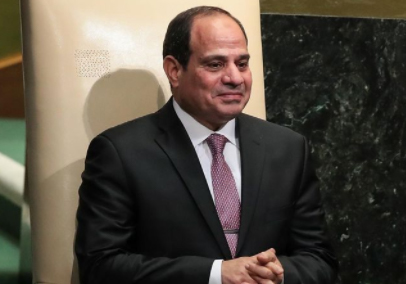
Feb 13, 2018 | News
The Egyptian government has trampled over even the minimum requirements for free and fair elections for the planned March 26-28, 2018 vote for president, the ICJ and thirteen international and regional rights organizations said today.
The government of President Abdel Fattah al-Sisi (photo) has relentlessly stifled basic freedoms and arrested potential candidates and rounded up their supporters.
“Egypt’s allies should speak out publicly now to denounce these farcical elections, rather than continue with largely unquestioning support for a government presiding over the country’s worst human rights crisis in decades,” the groups said.
The United States, European Union, and European states, which provide substantial financial assistance to the Egyptian government, should consistently integrate human rights into their relations with Egypt.
These countries should halt all security assistance that could be used in internal repression and focus aid on ensuring concrete improvements to protect basic rights.
The repression in advance of Egypt’s presidential election is a substantial escalation in a political environment that denies people’s rights to political participation and to freedom of expression, association, and peaceful assembly.
The Egyptian authorities should immediately release all those arrested for joining political campaigns or stating their intention to run as presidential candidates in the elections, the groups said.
The authorities have successively eliminated key challengers who announced their intention to run for president. They have arrested two potential candidates, retired Lt. Gen. Sami Anan and Col. Ahmed Konsowa.
A third potential candidate, Ahmed Shafik, a former prime minister and air force commander, apparently was placed under undeclared house arrest in a hotel until he withdrew from the race.
Two other key potential candidates, the human rights lawyer Khaled Ali and a former parliament member, Mohamed Anwar al-Sadat, backtracked on formally registering, citing the repressive environment, concerns over the safety of their supporters, and government manipulation.
The only current candidate running against al-Sisi is Mousa Mostafa Mousa, the leader of the Al-Ghad Party, which supports the government. He registered his candidacy on January 29, the last possible day, after efforts from pro-government parliament members to convince him to run.
Until the day before he registered his candidacy, he was a member of a campaign supporting al-Sisi for a second term. In this context, the right of every citizen to freely stand and vote in elections that reflect the free expression of the will of the electors appears meaningless.
These government actions are in contravention to Egypt’s Constitution and a clear violation of its international obligations and commitments, including the International Covenant on Civil and Political Rights (ICCPR), the African Charter on Human and Peoples’ Rights (ACHPR), and the 2002 African Union Declaration on the Principles Governing Democratic Elections in Africa. Article 25 of the ICCPR and Article III of the African Union declaration link political participation, as a voter and as a candidate, to the freedoms of assembly, expression, and association.
An EU handbook for elections observations, detailing standards of fair elections, says that these are rights “without which it [elections] cannot be meaningfully exercised.”
The current atmosphere of retaliation against dissenting voices and the increasing crackdown against human rights defenders and independent rights organizations have made effective monitoring of the elections extremely difficult for domestic and foreign organizations.
Media reports have said that the number of organizations that were granted permission to monitor the elections was 44 percent fewer than in the last presidential election in 2014 and that the number of requests, in general, has gone down.
Several opposition parties called for boycotting the elections. A day later al-Sisi threatened to use force, including the army, against those who undermine “Egypt’s stability and security.”
On February 6, the Prosecutor-General’s Office ordered an investigation against 13 of the leading opposition figures who called for a boycott, accusing them of calling for “overthrowing the ruling regime.”
“Seven years after Egypt’s 2011 uprising, the government has made a mockery of the basic rights for which protesters fought,” the groups said. “Egypt’s government claims to be in a ‘democratic transition’ but move further away with every election.”
Contact
Said Benarbia, Director of ICJ’s Middle East and North Africa Programme, t: +41-22-979-3817 ; e: said.benarbia(a)icj.org.
Signatories
Cairo Institute for Human Rights Studies
CIVICUS “World Alliance for Citizen Participation”
CNCD-11.11.11
EuroMed Rights “The Euro-Mediterranean Human Rights Network”
Human Rights First
Human Rights Watch
International Commission of Jurists
International Federation for Human Rights (FIDH)
International Service for Human Rights
Project on Middle East Democracy
Reporters Without Borders (RSF)
Robert F. Kennedy Human Rights
Solidar
World Organisation Against Torture (OMCT)
Egypt-Presidential vote neither free nor fair-Presse release-2018-ENG (Full Press release in English, PDF)
Egypte-Election présidentielle dans un contexte ni libre ni équitable-Communiqué de presse-2018-FRA (Full Press release in French, PDF)
Egypt-Presidential vote neither free nor fair-Presse release-2018-ARA (Full Press Release in Arabic, PDF)
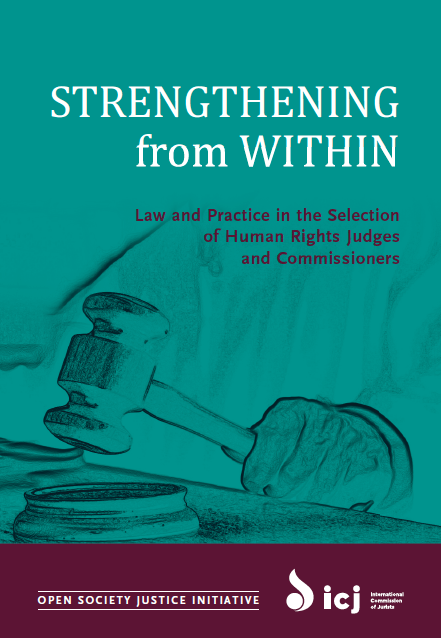
Nov 16, 2017 | Articles, Nouvelles, Publications, Rapports
Les procédures nationales de sélection pour les magistrats des cours régionales des droits de l’Homme ne respectent que trop rarement les standards d’équité, d’intégration et de transparence, selon les conclusions d’un rapport publié aujourd’hui par la CIJ et l’Open Society Justice Initiative.
Ce rapport fait des recommandations visant à assurer la sélection des meilleurs candidats comme magistrats des cours régionales des droits de l’Homme.
Les cours et commissions régionales des droits de l’Homme, y compris la Cour africaine des droits de l’Homme et des peuples, la Cour européenne des droits de l’Homme et la Commission interaméricaine des droits de l’Homme, sont des défenseurs essentiels de l’état de droit.
Pourtant, malgré leur importance, le processus de sélection des magistrats et commissaires qui siègent dans ces organes, c’est-à-dire la façon dont ils sont nominés, contrôlés et in fine sélectionnés, demeure largement inconnu et bien souvent organisé de manière opaque.
Associée à des efforts politiques répétés pour éroder les institutions de droits internationaux, cette opacité souligne le besoin crucial de se concentrer sur le renforcement de ces systèmes depuis l’intérieur.
Ce rapport, consolidé depuis l’intérieur, répond justement à ce défi.
Il met en lumière les processus qu’utilisent les Etats pour nominer et sélectionner les magistrats et commissaires des droits de l’Homme.
En analysant les pratiques de nominations de 22 pays, ce rapport documente la façon dont les procédures de nominations ne respectent pas assez souvent les cadres légaux et les standards internationaux qui seraient censés les guider.
Ce rapport identifie également les pratiques prometteuses et propose des recommandations fondées sur l’expérience.
Un pouvoir judiciaire indépendant est essentiel à l’état de droit: pour les cours nationales, les procédures de sélection du pouvoir judiciaire doivent être équitables, transparentes et basées sur le mérite.
Ainsi que que le fait remarquer ce rapport, les cours et tribunaux internationaux du monde entier sont à la même enseigne.
Universal-Strengthening from Within-Publications-Reports-2017-FRA (rapport complet en français, PDF)
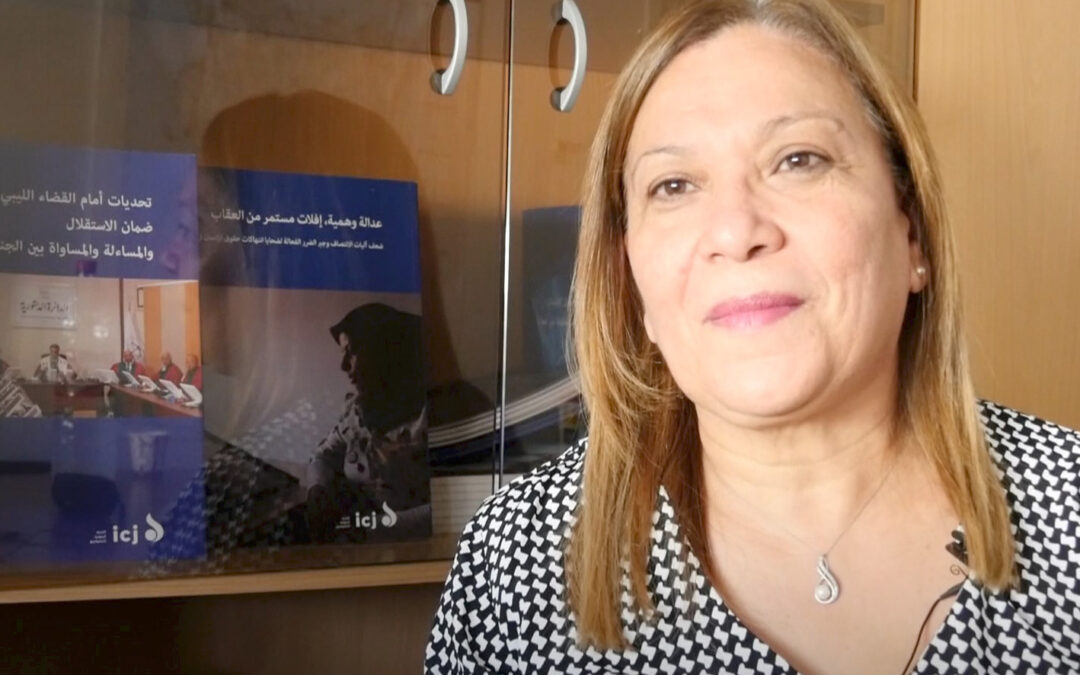
Nov 2, 2017 | Multimedia items, News, Video clips
The ICJ ends its series of profiles of its women Commissioners with an interview with Judge Kalthoum Kennou is currently serving her second term as ICJ Commissioner.
Kalthoum Kennou is a Judge of the Tunisian Cassation Court.
She previously served as an investigating Judge at the Tribunal of Tozeur in Tunisia (2010 – 2012), an investigating Judge at the Tribunal of Kairouan (2005 – 2010) and a Judge at the Court of Appeal of Tunis (2001-2005).
She is a strong advocate of the rule of law and the independence of the judiciary in Tunisia, and for women’s rights.
She was active in opposition to the dictatorship of President Zine el-Abidine Ben Ali.
As a consequence of her work, she was subjected to politically motivated personal attacks including arbitrary transfers to remote parts of the country.
After the political revolution in January 2011, she became President of the Association of Tunisian Judges.
She has worked on the new Tunisian Constitution and was the first female candidate in the November 2014 Presidential elections.
In this interview, Judge Kennou speaks about the reasons that prompted her to take up a legal career.
Her father was wrongly accused of high treason and imprisoned and she wanted to show people that there could be fair judges who worked independently.
On his release, her father also supported her decision to study the law.
She was appointed a judge in 1989 but said that other women had been appointed before her so it was not that difficult.
The main problems were that male judges were reluctant to discuss certain issues in front of her and she had to stand up for herself.
“However what was a bit troublesome was with the police when I gave them instructions and I think they would have preferred it was a man and not a woman. But I stood up for myself and I became an investigating judge and I was there to give orders to the police, to the clerk of court, as a judge and as a woman judge.”
Under the dictatorship of Ben Ali, she explains in the interview that there were a quite an important number of judges who resisted and defended the independence of the judiciary.
“… I think our resistance had some results. The proof was that just after the revolution, the question of the independence of the judiciary became a demand of the people, not just the judiciary.”
She explains in the interview that now 43% of the judiciary in Tunisia are women.
This is because there are more women studying law, more women than men, and because the government is promoting women’s equality.
However, many women may take up a legal career without wishing to become a judge.
This is because of family reasons, as they don’t wish to be appointed to a court away from home and in some families, parents might feel that women should be protected from some of the real problems of society.
“But actually I think this kind of thinking is less common now and will disappear bit by bit. Judges have shown that they can have an impact and society accepts female judges more than male judges. They consider that female judges are less corrupt, that they are more serious and are making more efforts to deliver justice.”
The main problems for women in accessing justice in Tunisia are related to pressure from the family not to file complaint in cases of domestic violence.
Also there is a problem with the attitudes of the police who do not take physical aggression against a woman seriously.
The third issue is the mentality of some judges, including some women judges, who are not really convinced that a husband does not have the right to beat his wife.
“The law exists but we should also work on people’s mentalities so that the law is correctly applied.”
Judge Kennou concludes the interview with some advice for young women considering a legal career. She said that a young woman must learn to “stand up for herself and for her rights at home because you cannot be free, you cannot give to others, if your own rights are not realized… I think that a woman who wants to be a judge should be really convinced and well trained about human rights so she can apply the law in a correct manner. “
Watch the interview:
The series of profiles introducing the work of ICJ Commissioners and Honorary Members on women’s rights was launched on 25 November 2016 to coincide with the International Day to Eliminate Violence against Women and the first day of the 16 Days of Activism Against Gender-Based Violence Campaign.
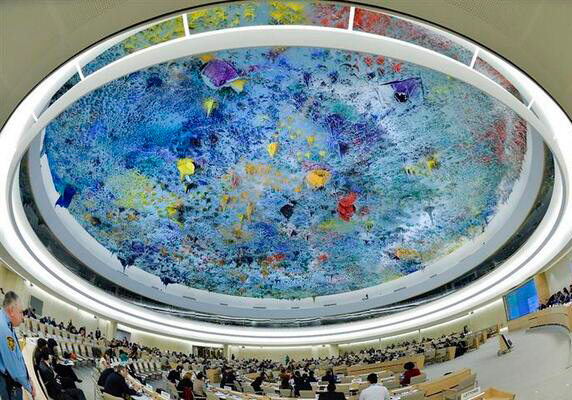
Sep 19, 2017 | Plaidoyer
La CIJ s’est jointe à d’autres organisations de la société civile pour demander au Conseil des droits de l’Homme de renouveler le mandat de la Commission d’enquête sur le Burundi.
Ils demandent aussi de suspendre la participation du Burundi au Conseil et d’autres mesures de justice et de responsabilité.
Nous, les organisations de la société civile soussignées, vous écrivons pour vous demander de soutenir une résolution renouvelant le mandat de la Commission d’enquête des Nations Unies sur le Burundi (la Commission), et d’appeler le Conseil des droits de l’homme des Nations Unies (le Conseil) à explorer pendant sa 36ème session toutes les options pour assurer la responsabilité des crimes documentés par la Commission y compris, conformément à sa recommandation, l’ouverture d’une enquête par la Cour pénale internationale (CPI), dont le Bureau du Procureur a annoncé l’ouverture d’un examen préliminaire le 25 avril 2016. En outre, nous sollicitons le Conseil de demander la suspension du Burundi du Conseil ou, au minimum, de demander explicitement à l’Assemblée générale d’examiner la question conformément à l’OP8 de la résolution 60/251 de l’Assemblée générale.
Suite du plaidoyer dans le PDF ci-dessous:
HRC36-OpenLetter-Burundi-2017-FR (Lettre complète en PDF)
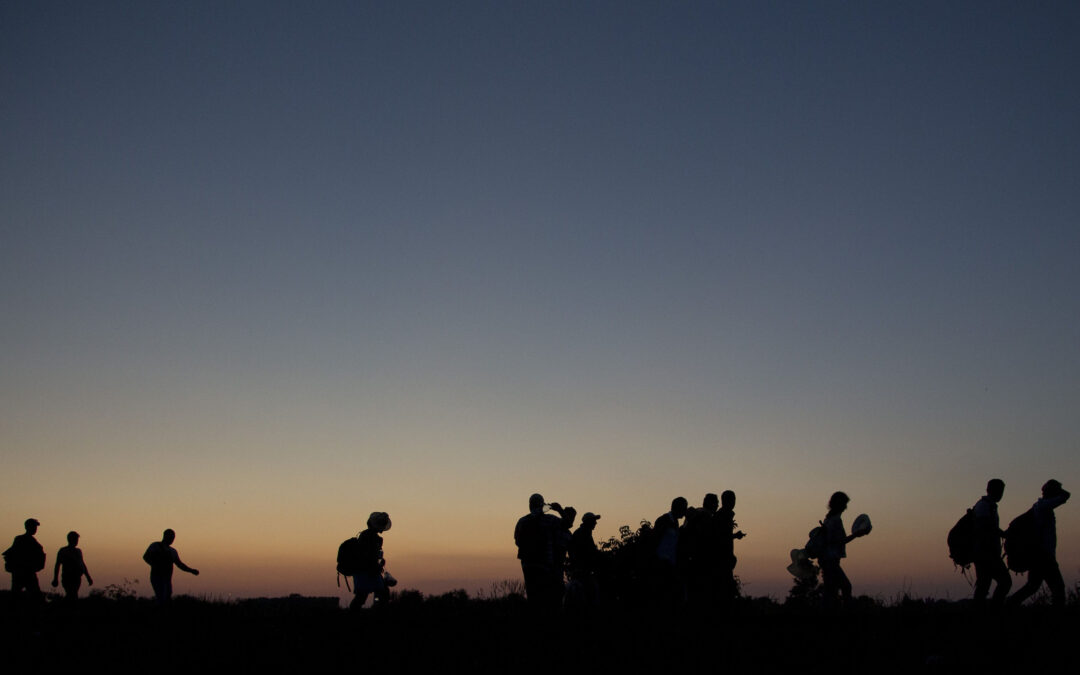
May 5, 2017 | Advocacy, News, Publications
The ICJ has published a set of Principles on the Role of Judges and Lawyers in relation to Refugees and Migrants.
The Principles were developed by the ICJ on the basis of consultations with senior judges, lawyers, and legal scholars working in the field of international refugee and migration law (including at the 2016 Geneva Forum of Judges & Lawyers), as well consultations with States and other stakeholders on a draft version during the March 2017 Human Rights Council session, and other feedback.
The Principles seek to help judges and lawyers, as well as legislators and other government officials, better secure human rights and the rule of law in the context of large movements of refugees and migrants. They are intended to complement existing relevant legal and other international instruments, including the New York Declaration, as well as the Principles and practical guidance on the protection of the human rights of migrants in vulnerable situations within large and/or mixed movements being developed by the OHCHR.
The Principles address the role of judges and lawyers in relation to, among other aspects:
- determinations of entitlement to international protection;
- deprivation of liberty;
- removals;
- effective remedy and access to justice;
- independence, impartiality, and equality before the law;
- conflicts between national and international law.
The Principles, together with commentary, can be downloaded in PDF format by clicking here: ICJ Refugee Migrant Principles 2017.
They are also available in Spanish, French and Arabic.
The ICJ formally launched the published version of the Principles at a side event to the June 2017 session of the Human Rights Council (click here for details), where their importance and utility were recognised by the UN Special Rapporteur on the human rights of migrants, as well as representatives of UNHCR and the OHCHR.
The ICJ had earlier released the final text in connection with the Thematic Session on “Human rights of all migrants” for the UN General Assembly Preparatory Process for the Global Compact for Safe, Orderly and Regular Migration to be held in Geneva 8-9 May 2017, where in an oral statement the ICJ was able to highlight the potential utility of the Principles in the development of the Compact.
The ICJ further promoted consideration of the Principle, in an oral statement to the Human Rights Council.
More information about the process of development of the Principles, including the list of participants to the 2016 Geneva Forum, is available here.
The consultations, preparation and publication of the Principles was made possible with the financial support of the Genève Internationale office of the Republic and Canton of Geneva, for which the ICJ is grateful.
For further information, please contact ICJ Senior Legal Adviser Matt Pollard, matt.pollard(a)icj.org









